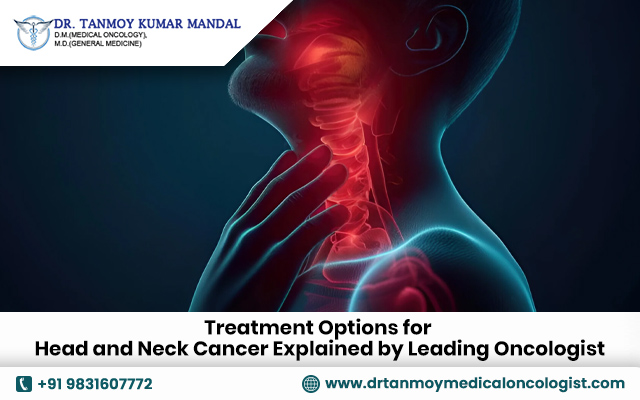Head and neck cancers encompass a range of malignancies that affect the mouth, throat, nasal passages, and related structures. These cancers can be complex and challenging, requiring a personalized treatment approach tailored to each patient’s condition.
A head and neck cancer doctor, also known as an Oncologist, specializes in the complexities of these cancers, offering expertise that guides patients through personalized treatment plans. Here, the leading oncologists of Kasturi Medical Centre, renowned for their expertise and experience, provide comprehensive details on treatment options for head and neck cancer.
Understanding Head and Neck Cancer
Head and neck cancer affects the oral cavity, pharynx, larynx, nasal passages, and related structures. A head and neck cancer doctor assesses the type and stage of cancer to determine the most effective treatment approach—factors such as the tumor’s location and the patient’s overall health influence these decisions.
1. Surgery
- Overview: Surgery is often a primary treatment for head and neck cancer, especially in early-stage tumor’s or when the tumor is localized and operable.
- Procedure: The surgeon performs surgery to remove cancer cells while preserving function and appearance.
- Indications: Depending on the tumor’s size and location, surgery may be performed with radiation therapy or chemotherapy to enhance treatment effectiveness.
2. Radiation Therapy
- Overview: Radiation therapy uses high-energy rays to destroy cancer cells while minimizing damage to nearby healthy tissues.
- Types: External beam radiation therapy (EBRT) and brachytherapy are common types used for head and neck cancers. EBRT directs radiation from outside the body, while brachytherapy involves placing radioactive sources directly into or near the tumor.
- Indications: Radiation therapy may be used before surgery to shrink tumor’s, after surgery or as a primary treatment when surgery is not feasible.
3. Chemotherapy
- Overview: Managed by oncologists, including those specializing in head and neck cancers, chemotherapy employs drugs to destroy cancer cells throughout the body.
- Role in Treatment: Chemotherapy is used in advanced stages of cancer. It is performed in combination with surgery and radiation therapy for advanced stages or to reduce the risk of recurrence.
4. Targeted Therapy
- Overview: Tailored by oncologists based on genetic testing and tumor characteristics, targeted therapy therapy interferes with specific molecules in cancer growth.
- Indications: This approach, coordinated by a head and neck cancer doctor, is practical for cancers with specific genetic mutations or protein over expression.
Choosing a skilled head and neck cancer doctor is not just important, it’s essential for navigating the complexities of treatment options. This decision is a crucial step towards ensuring the best possible outcome for your health.

